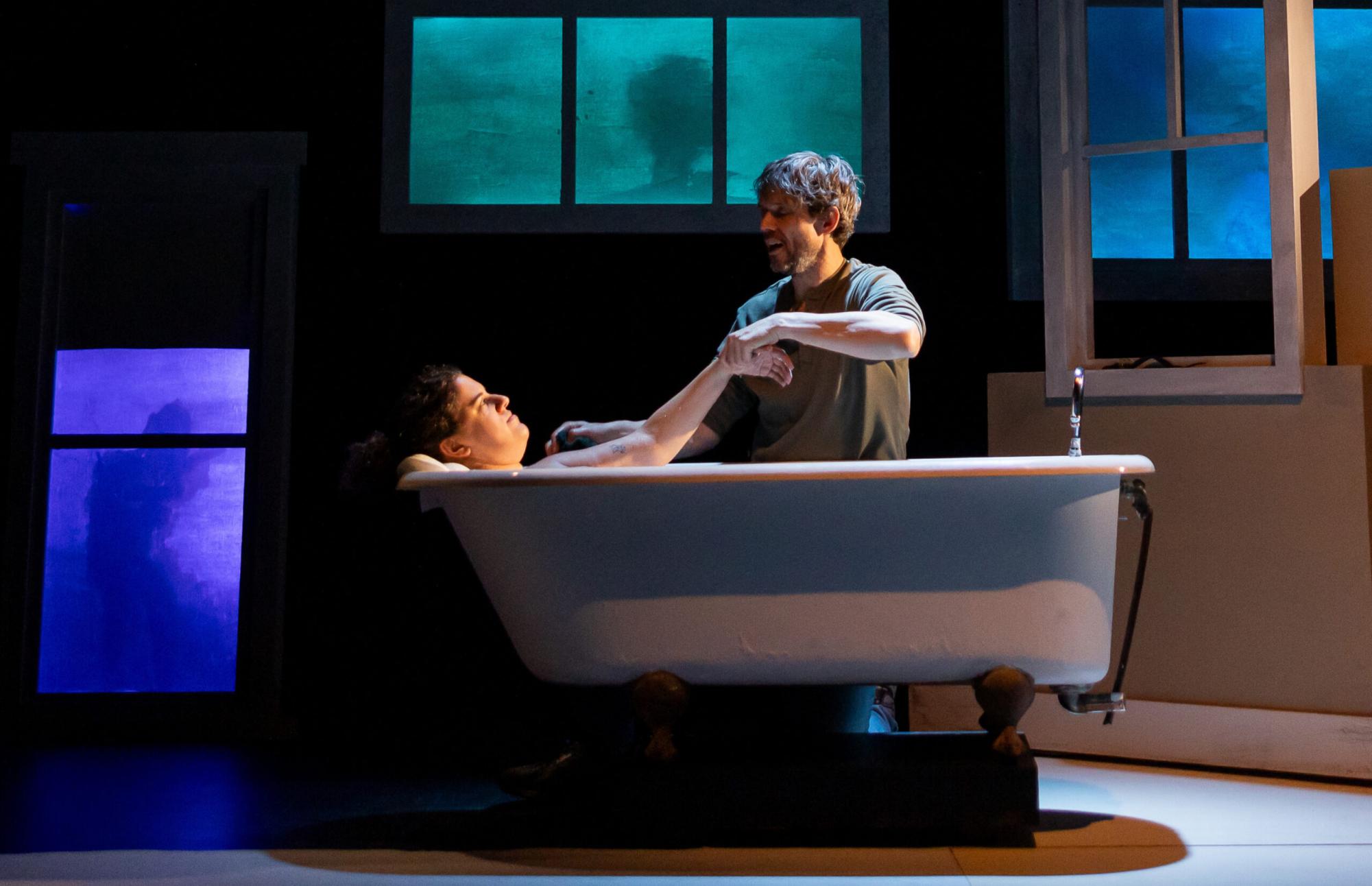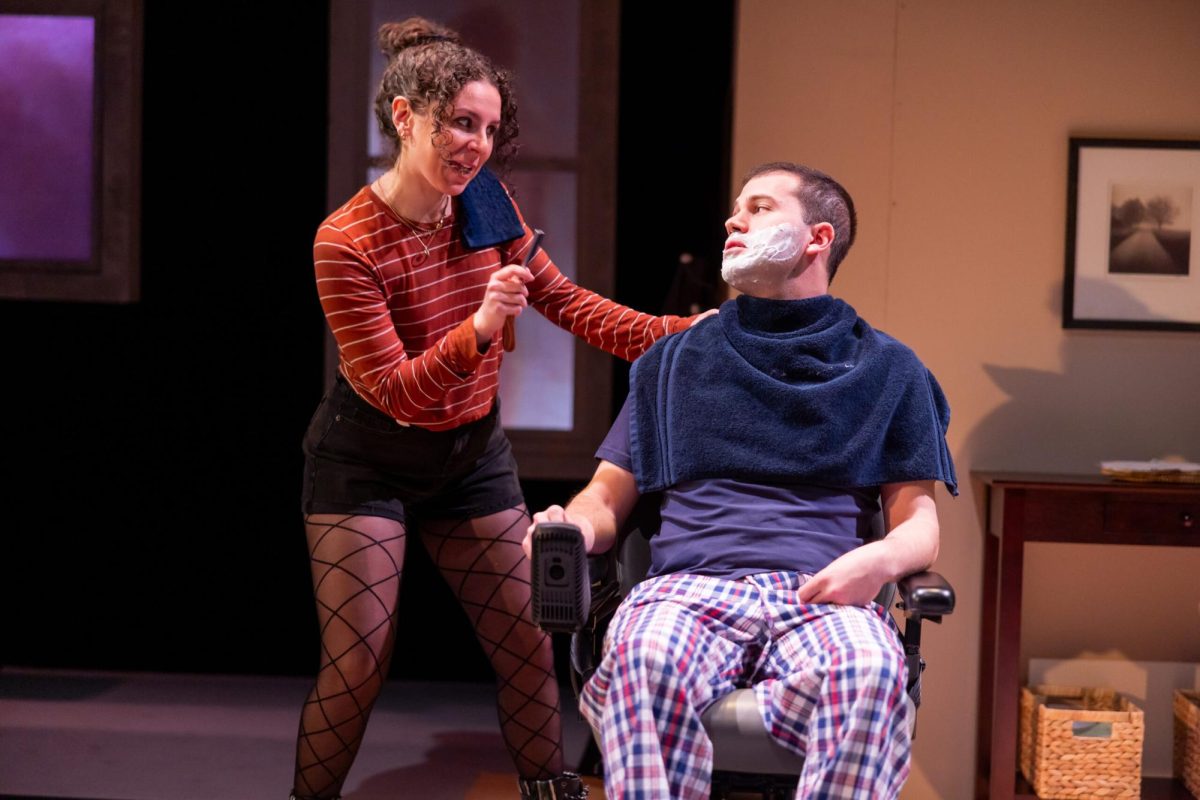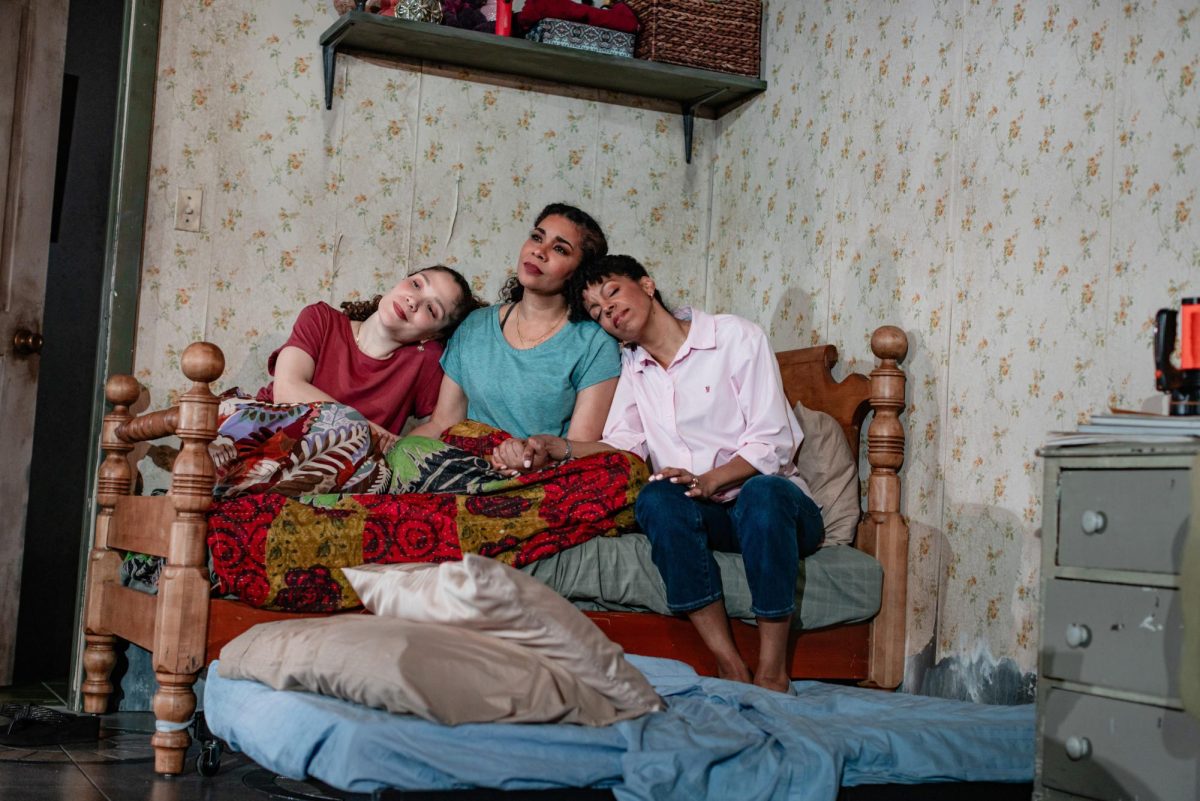Speakeasy Stage Company welcomed the Boston premiere of playwright Martyna Majok’s “Cost of Living,” which was awarded the 2018 Pulitzer Prize for Drama, from March 8 to 30 at Roberts Studio Theatre in the Stanford Calderwood Pavilion. With a cast of only four actors, Gina Fonseca (Jess), Stephanie Gould (Ani) and Sean Leviashvili (John) made their Speakeasy debuts alongside veteran actor Lewis D. Wheeler (Eddie).
Leviashvili, a 2010 alum of Northeastern’s journalism program, expressed what themes drew him to the play, which, according to the show’s director, Alex Lonati, aims to show feeling lonely even when surrounded by others.
“‘Cost of Living’ is very much about how taxing life can be — how literally quite expensive it can be. We all depend on each other, without knowing it sometimes,” Leviashvili said.
The play follows two parallel stories: Eddie, an unemployed truck driver, reunites with Ani, his estranged ex-wife, while John is introduced to his new cerebral palsy aide, Jess. Ani suffers from paralysis after a car crash and John uses a wheelchair due to his cerebral palsy. Both John and Ani’s conditions are crucial to the storyline, as they heavily depend on their respective partners, Jess and Eddie, to carry out basic activities. Little do they know, both partners rely on John and Ani just as much as their counterparts rely on them.
Immediately drawn to the script, Lonati was thrilled to pick up the production.
“I was bowled over. I had to take a walk afterward because I was so struck by how deeply human the play is,” she said. “I was drawn to the vulnerability, exploration in caretaking and how real these four characters are.”

In addition to being the show’s director, Lonati also serves as a disability advocate. “Cost of Living” offered select shows with accessible performances for attendees who struggle in traditional theatre environments, which are often silent, sedentary zones. Speakeasy Stage Company offered audio-described and open-captioned performances for five different shows and a “relaxed performance” March 16. Relaxed performances are shows that allow “relaxed theatre etiquette expectations,” according to the company’s website.
“The arts should be for everyone. It has become rather elite, but everyone deserves to be [at the theatre], heard and seen,” Lonati said. She defines accessibility advocacy as a mindset where “everyone should be met where they are … wherever they are.”
Leviashvili is one of two actors in the show with cerebral palsy, the other being Gould, and explained how the neurological disorder manifests itself differently in each person. In the script, Majok specified she wanted people with disabilities to play the characters John and Ani.
“She specifically requests it, which I think is amazing. We have been able to bring so much of our experience to these characters and storylines,” Leviashvili said.
While his overall experience at Speakeasy Stage Company has been positive, Leviashvili said the process of getting comfortable in John’s shoes was intimidating. Leviashvili walks with a limp and tightness on the lower half of his body, while his character, John, has more pronounced symptoms, such as having a speech impediment and using a wheelchair.
“The speech was the most intimidating factor, followed by navigating a wheelchair,” he said.
In addition to having Lonati on set as the show’s disability advocate and director, Speakeasy Stage Company also hired an occupational therapy consultant, Beth Cashin, to teach the actors a realistic routine someone with disabilities may go through. The company also hired Kira Troilo, an equity diversity inclusivity consultant, to foster a fair working environment.
“These are important stories that people can relate [to] and connect with,” Leviashvili said. “No one wants to treat them with anything less than a lot of love and care.”
The story’s meaning is deep: Instead of characters whose disabilities define their lives, “Cost of Living” portrays them leading dynamic lives, just like any abled person.
The representation and authenticity on stage especially moved Pam Varrin, an attendee whose son uses a wheelchair.
“There were people being taken care of. Sometimes there is a Hollywood-ized version of what it’s like for people to have everything done for them,” she said.
Another attendee, Suzanne Morse-Fortier, echoed that sentiment.
“There aren’t enough opportunities for individuals who live with disabilities,” she said.
At the end of the play, the two parallel stories intersect when Eddie and Jess meet. It’s not a fairytale ending, but that was intentional, Lonati said.
“I hope that people leave this theatre and, if they have others they care about, call them or hug them,” Lonati said. “Because, at its core, this play is about how we need other people. All of us are different, but in the end, quite similar.”











